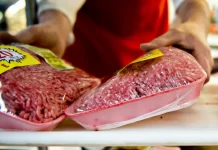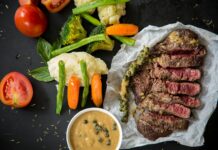A diet with lots of fiber-rich foods (such as vegetables or fruit) can increase gas in some people. The vegetables that we propose are among the least flatulent.

The health benefits of a plant-based diet are undoubted: it helps control weight, prevents chronic diseases, increases energy… However, eating a lot of fiber-rich foods, such as vegetables, legumes, whole grains and fruits, can cause gas.
VEGETABLES THAT DO NOT PRODUCE GAS
Why are gases produced? Gases are the natural result of fermentation of food in the gastrointestinal tract. During digestion, bacteria inhabiting the colon and large intestine ferment undigested carbohydrates (such as fiber and sugars), a process that releases gas. Other factors, such as swallowing air when eating or stress can also contribute to gas production.
Consuming foods rich in fermentable fiber can increase gas production in the gut. However, not all types of fiber are equally fermentable and some may be less likely to cause gas.
To minimize gas production, in addition to chewing food thoroughly, drinking water and exercising regularly to stimulate digestion, you can opt for those vegetables that contain less fermentable fiber.
Next, we propose 6 vegetables that do not produce gas (or that almost do not produce them).
1. CARROTS
Carrots contain very few short-chain fermentable carbohydrates, a group of nutrients also called FODMAPs that can be difficult to digest in the small intestine and are fermented by gut bacteria in the large intestine, which can cause gastrointestinal problems such as gas.
In addition, it is the richest vegetable in beta-carotene, which is converted into vitamin A in our body, important for the health of the eyes, skin and mucous membranes. They are low in calories and provide vitamins C, E and B9 and minerals such as potassium.
You can take it in a thousand ways, for example, as an appetizer in the form of sticks, in juice, in the form of cream or sautéed to serve as a garnish.
2. ASPARAGUS
Asparagus contains non-fermentable fiber, a type of fiber that is not fermented in the large intestine and passes through the digestive tract without being digested.
They are low in calories and rich in vitamins and minerals, such as vitamin C, vitamin K, folic acid, iron, and potassium. They also contain asparagine, an amino acid that acts as a natural diuretic and helps the body eliminate excess water.
3. POTATOES
Potatoes contain resistant starch, a type of starch that acts as a non-fermentable fiber and can help reduce gas formation and improve overall gut health. Their content may vary depending on the type of potato and how they are prepared: cooked and cooled potatoes, for example, contain more resistant starch and are more recommended than baked or fried potatoes.
They are also rich in vitamins and minerals, such as vitamin C, potassium, vitamin B6, and iron.
4. ZUCCHINI
Zucchini is low in fermentable fiber and is easily digestible, which can help prevent gas.
In addition, it is low in calories and rich in nutrients, such as vitamin C, B6, folic acid, potassium and manganese.
It is very versatile and therefore include in countless dishes, either steamed, sautéed, roasted …
5. CUCUMBER
Cucumber is also low in fermentable fiber. In fact, unlike many vegetables, cucumbers are relatively low in fiber, so there’s little chance of your belly swelling.
It is very refreshing and moisturizing (95% is water) and is rich in vitamins and minerals.
6. LETTUCE
Although there are people who accuse lettuce of causing gas, in reality the gases when eating lettuce are usually due to the state of the microbiota. Most leafy greens (such as lettuce, spinach, Swiss chard, or kale) are rich in non-fermentable fiber and therefore do not usually cause gas, even in people with irritable bowel syndrome (although tolerance may vary). If you experience gas when eating lettuce, chew its leaves well and add fennel, cumin or oregano to the dressing.
Lettuce is also low in calories and rich in water, which makes it an excellent choice for promoting hydration. And it is not only used for salads, you can use it in many dishes such as sandwiches, tacos, creams, juices …



